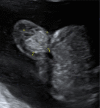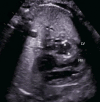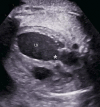Counseling for fetal heart disease-current standards and best practice
- PMID: 34584893
- PMCID: PMC8429860
- DOI: 10.21037/tp-20-181
Counseling for fetal heart disease-current standards and best practice
Abstract
Congenital heart disease (CHD) is the most common cause of major congenital anomalies affecting newborns. Prenatal detection of CHD has been improving continuously during the last two decades due to technical advances and thus optimized fetal cardiac imaging. Besides the in-utero diagnosis of CHD effective parental counseling is an integral part of any Fetal Cardiology Program. However, studies on the most effective techniques are scarce, as well as data on empirical assessment of counseling and its effectiveness. In this review article, we summarize current guidelines from different international associations and societies. We provide an updated literature overview evaluating current standards of counseling with regard to parental needs. This includes ethical aspects, counseling for univentricular disease and in-utero cardiac interventions. We discuss our method to assess counseling success for fetal heart defects by exploring different analytical dimensions that may be considered helpful in order to improve efficacy. Finally, we present a proposal of how to optimize a setting for counseling based on the current literature and our own data. In summary, parental counseling for fetal heart disease is complex and multidimensional. Significant expertise in fetal cardiology and physiology, potential progression of CHD, postnatal treatment strategies and knowledge of long-term sequelae is necessary. A structured approach, together with continuous improvement of communicative skills, may lead to more effective counseling for parents following a diagnosis of CHD in the fetus.
Keywords: Fetal cardiology; congenital heart disease (CHD); counseling; interdisciplinary approach.
2021 Translational Pediatrics. All rights reserved.
Conflict of interest statement
Conflicts of Interest: The authors have completed the ICMJE uniform disclosure form (available at http://dx.doi.org/10.21037/tp-20-181). The series “Pre-natal Diagnosis in Congenital Heart Defects” was commissioned by the editorial office without any funding or sponsorship. SB reports grants from Ministry of Social Affairs Baden-Württemberg, grants from HeiKaExplore (Heidelberg Karlsruhe Strategic Partnership), outside the submitted work. The other authors have no other conflicts of interest to declare.
Figures










Similar articles
-
Counseling for Prenatal Congenital Heart Disease-Recommendations Based on Empirical Assessment of Counseling Success.Front Pediatr. 2020 Feb 26;8:26. doi: 10.3389/fped.2020.00026. eCollection 2020. Front Pediatr. 2020. PMID: 32175290 Free PMC article.
-
[Fetal and genetic aspects of congenital heart disease].Ther Umsch. 2001 Feb;58(2):70-5. doi: 10.1024/0040-5930.58.2.70. Ther Umsch. 2001. PMID: 11234453 Review. German.
-
Pediatric prenatal diagnosis of congenital heart disease.Curr Opin Pediatr. 2014 Oct;26(5):536-45. doi: 10.1097/MOP.0000000000000136. Curr Opin Pediatr. 2014. PMID: 25136946 Review.
-
Prenatal Counseling of Fetal Congenital Heart Disease.Curr Treat Options Cardiovasc Med. 2017 Jan;19(1):5. doi: 10.1007/s11936-017-0502-1. Curr Treat Options Cardiovasc Med. 2017. PMID: 28197939 Review.
-
Prenatal counseling in cardiac surgery: A report of 225 fetuses with congenital heart disease.Zhong Nan Da Xue Xue Bao Yi Xue Ban. 2020 Jul 28;45(7):812-818. doi: 10.11817/j.issn.1672-7347.2020.190198. Zhong Nan Da Xue Xue Bao Yi Xue Ban. 2020. PMID: 32879085 Chinese, English.
Cited by
-
Fetal Cardiac Services during the COVID-19 Pandemic: How Does It Affect Parental Counseling?J Clin Med. 2021 Jul 31;10(15):3423. doi: 10.3390/jcm10153423. J Clin Med. 2021. PMID: 34362206 Free PMC article.
-
Evaluating How Physician Attitudes May Affect Practice in Fetal Cardiac Counseling.Pediatr Cardiol. 2024 Oct;45(7):1550-1558. doi: 10.1007/s00246-023-03210-0. Epub 2023 Jun 19. Pediatr Cardiol. 2024. PMID: 37335356
-
Ethical Considerations in Fetal Cardiology.J Cardiovasc Dev Dis. 2024 Jun 1;11(6):172. doi: 10.3390/jcdd11060172. J Cardiovasc Dev Dis. 2024. PMID: 38921672 Free PMC article. Review.
-
Parents' Perspectives on Counseling for Fetal Heart Disease: What Matters Most?J Clin Med. 2022 Jan 5;11(1):278. doi: 10.3390/jcm11010278. J Clin Med. 2022. PMID: 35012018 Free PMC article.
-
The Ethics of Fetal Cardiac Intervention.Asian Bioeth Rev. 2025 Mar 14;17(2):265-278. doi: 10.1007/s41649-024-00354-w. eCollection 2025 Apr. Asian Bioeth Rev. 2025. PMID: 40225803
References
Publication types
LinkOut - more resources
Full Text Sources
